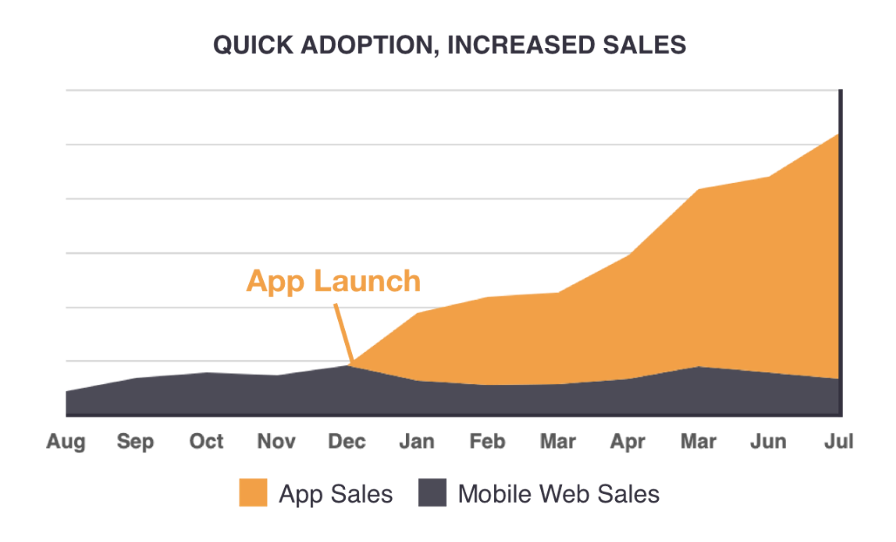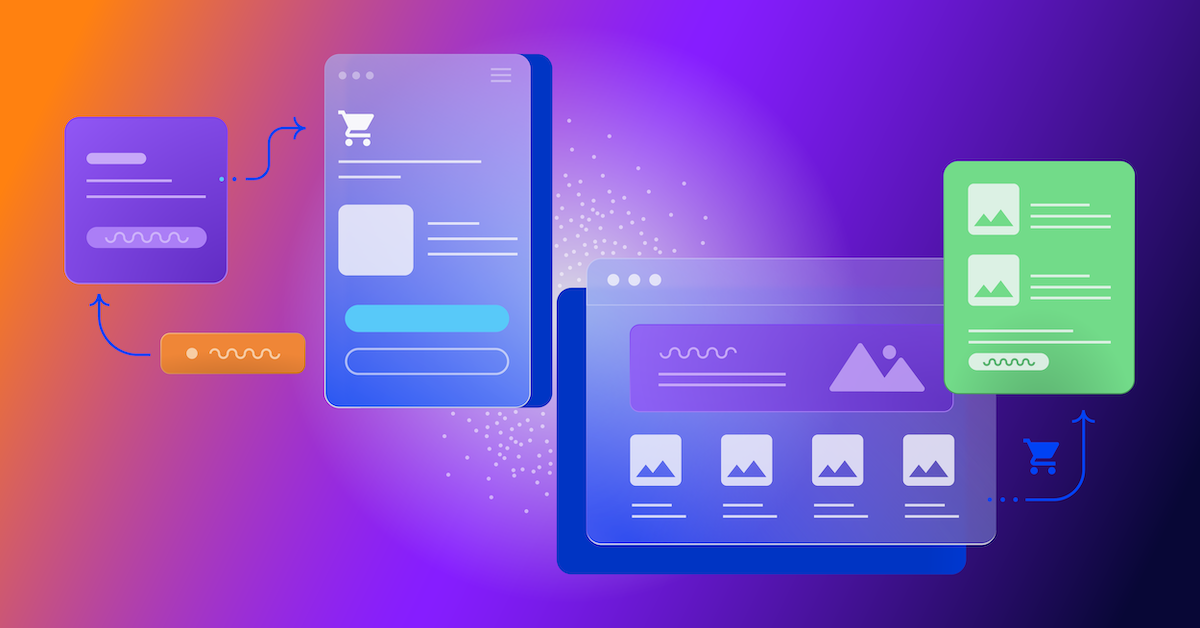The benefits of extending Optimizely into a B2B app
Apps drive deeper customer engagement, more conversions and a higher AOV. Done right, an app can leverage and extend ecommerce and offer a new direction for your omnichannel strategy that will delight buyers. Learn more below.

Wilson Kerr

Paper order forms, faxes and even old-fashioned phone calls still tend to dominate the wholesale sales process. While B2B is way behind B2C, the move to digital commerce is underway and accelerating. This is precisely why ecommerce platforms that specialize in delivering B2B tools, features and functionality (like Optimizely) are seeing such rapid growth.
A recent Gartner report examines the rapid move toward B2B digital enablement and a key finding is that buying decisions and the actual purchases are no longer being driven by sales reps, as online ordering surges. In fact, at the time of the study, only 17% of the wholesale purchase journey was attributed to sales rep interactions and, among millennials, fully 44% said they prefer no sales rep interaction at all when making buying decisions.
This quote from the report struck me as particularly important. “As baby boomers retire, and millennials mature into key decision-making positions, a digital-first buying posture will become the norm. Further, we expect the acute spike in digital buying during the COVID-19 pandemic to have sustained influence on customer comfort with digital learning and buying.”
Covid-fueled retail ecommerce has exploded and B2B is finally starting to catch up. Smart B2B businesses are starting to adopt a “digital-first” stance and considering an app as a logical extension of their online wholesale ordering platforms.
The reason apps play such a big role in B2B is utility. B2B buying is very complex and ecommerce platforms are usually tied into an ERP and CRM. Tools for account-based custom pricing and order list management are typically folded in.
The B2B path to purchase can be a winding one and an app can straighten this road by personalizing the online buying experience and delivering it in an always-on manner, literally in the pocket of buyers. Reducing customer service time/expense and data entry error is often cited as a primary goal of wholesalers considering an app.
After all, all wholesale buyers are consumers themselves and covid-driven retail app adoption and use has skyrocketed in the last two years. Mobile app usage was up 40% during covid. Another factor is that, increasingly, wholesale customers expect an app to make ordering easier and more personalized.
Ask yourself when was the last time you logged into the Amazon mobile browser? Odds are, you never have, since the instantly-personalized experience of the app is far-superior. With an app, there’s no need to enter payment information, no need to type in your address and order history is called up instantly. Page load times are nearly instantaneous and you get the app-only option of using push messaging to drive deeper engagement with wholesale accounts.
Chef’s Warehouse is one of our biggest B2B customers they recently re-platformed to Optimizely. We built their B2B app out to leverage and extend new Optimizely B2B features and functionality and the results have been fantastic. Their reps can easily access customer order history and account-specific pricing, etc. The app consistently delivers a conversion rate that is three times that of the mobile website and the majority of buyers/chefs now use the app for wholesale ordering.

Apps were once thought of as “nice to haves” but this is changing fast, as buyers demand tools to make complex wholesale ordering processes easier. As more and more wholesale businesses move online and the business starts to catch up to retail, the leaders in the space will be first to market with an app, so they can learn and iterate and phase in new features.
According to Digital Commerce 360, in 2021, online B2B sales grew 17.8% to $1.63 trillion from $1.39 trillion in 2020. In fact, B2B ecommerce sales grew faster than all other manufacturing and distributor sales in the U.S.
Gartner calls the successful delivery of digital, online tools to help smooth the path the purchase “Buyer Enablement” and concludes the research with the following: “Customers are migrating decisively from in-person channels to digital alternatives…new digital channels must be purpose-built to drive sales performance, justified by a simple truth: customers learn and buy digitally.”
Apps are all we do, we make the process easy, and the ROI is typically rapid. Orders placed on the app “pour into” your current Optimizely operations and data is seamlessly synched between the app and Optimizely.
If you are interested in a custom app to meet your specific needs, please consider visiting our page on the Optimizely solution marketplace. We work with Optimizely customers like Chef’s Warehouse and Binny’s Beverage Depot and can customize an app project specifically designed to meet your unique requirements.
Got app? If not, you should be considering the potential benefits to your wholesale business.
